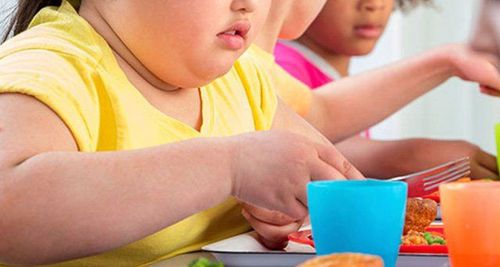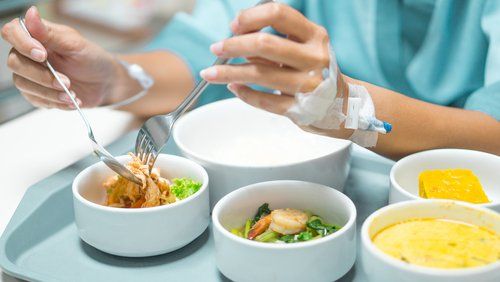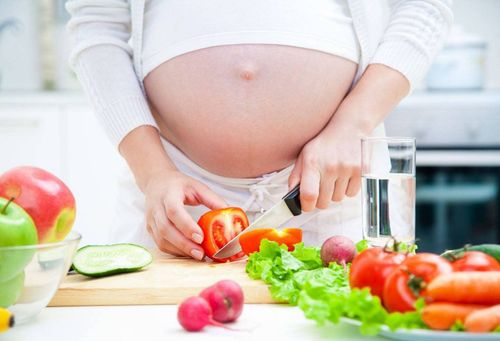This is an automatically translated article.
Anorexia and weight loss are two of the most common manifestations in people with cancer, leaving patients often malnourished, which reduces the body's response to cancer treatments. That's why nutrition plays a very important role. A suitable diet will contribute to increasing physical strength, resistance to improving the effectiveness of disease treatment.1. Objectives, criteria and methods of nutritional assessment for cancer patients
The goals of nutritional assessment and treatment of cancer patients should include:Processes to counteract the effects of hormones and other factors on angiogenesis and metastasis, as well as to inhibit growth proliferation of cancer cells Prevent or reverse nutrient deficiencies Protect the body's muscle mass Increase the body's tolerance to anti-cancer treatments Minimize side effects and nutrition-related complications, reduce the risk of infection, improve quality of life.... Diet can also be applied to control blood pressure in patients undergoing cancer treatment. mail, especially by chemotherapy. Two methods of nutritional status assessment in cancer patients are recommended:
Prognostic Nutrition Index (PNI): PNI uses indicators such as body weight, skin fold thickness, concentration serum albumin and transferrin levels to classify patients into nutritional status categories to predict clinical outcome. Subjective Comprehensive Assessment (PG-SGA): This approach includes an inquiry into weight history, food intake, symptoms, and assessed function in the context of weight loss, illness, and condition. metabolic stress. These findings, together with the nutrition-related physical exam, provide a score against which to judge whether nutritional intervention is necessary. In addition, additional criteria are proposed to assess the need for oral, enteral, or parenteral nutritional support including:
Weight less than 80% of ideal weight Unintentional weight loss 10% of body weight Poor absorption due to illness, short bowel syndrome or cancer treatment Fistula or abscess drainage Unable to eat or drink for more than 5 days.
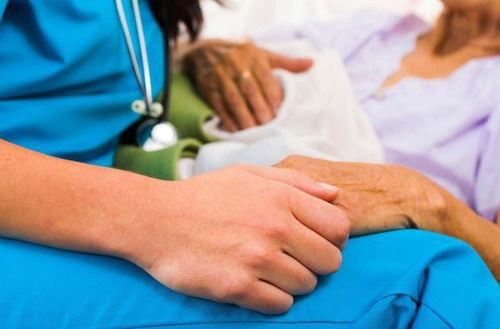
2. Necessary nutrition for cancer patients
The nutritional needs of each person with cancer are different. An appropriate diet can help the patient:Maintain body weight and nutrients. Better tolerate treatment-related side effects. Reduce the risk of infection. Heal and recover faster. During cancer treatment, you need to change your diet to help you improve your health and withstand the effects of chemicals. These nutrients include proteins, fats, carbohydrates, water, vitamins and minerals.
2.1 Protein Cancer patients need a high-protein diet to boost the immune system, heal tissues, and help fight infections.
Good sources of protein include fish, poultry, lean red meat, eggs, low-fat dairy products, nuts and nut butters, dried beans, peas and lentils, and whole foods soy bean.
Trắc nghiệm: Thử hiểu biết của bạn về bệnh ung thư
Ung thư là nguyên nhân gây tử vong hàng thứ 2 trên thế giới. Thử sức cùng bài trắc nghiệm sau đây sẽ giúp bạn có thêm kiến thức về yếu tố nguy cơ cũng như cách phòng ngừa bệnh ung thư.
Bài dịch từ: webmd.com
2.2 Fat Fats and oils are an abundant source of energy for the body. The body breaks down fats and uses them to store energy, isolate body tissues, and transport certain vitamins through the blood. For cancer patients, choose monounsaturated fats (olive oil). , canola and peanuts) and polyunsaturated fats (found mainly in safflower, sunflower, corn, flaxseed and seafood oils) rather than saturated or trans fats.
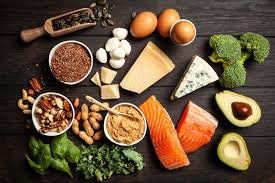
The best carbohydrates found in fruits, vegetables and whole grains provide essential vitamins and minerals, fiber and phytonutrients for the body's cells.
Other good sources of carbohydrates include bread, potatoes, rice, pasta, pasta, cereals, corn, peas and beans. Sweets (desserts, candies and sugary drinks).
2.4 Water All body cells need water to function. If you don't get enough fluids or if you lose fluids through vomiting or diarrhea, you can become dehydrated which can cause your body to become unbalanced.
2.5 Vitamins and minerals Some people with cancer take large amounts of vitamins and minerals to try to strengthen the immune system. In fact, taking large doses of vitamins and minerals can make chemotherapy and radiation therapy less effective.
2.6 Antioxidants If you want to absorb more antioxidants, health experts recommend eating a variety of fruits and vegetables, which are good sources of antioxidants.
However, taking large doses of vitamin-fortified liquid antioxidant supplements is generally not recommended during chemotherapy or radiation therapy. Talk to your doctor to find out the best time to take an antioxidant supplement.
2.7 Phytonutrients Phytonutrients or phytochemicals are plant compounds such as carotenoids, lycopene, resveratrol, and phytosterols that are believed to have health-protective qualities. They are found in plants like fruits and vegetables or things made from plants like tofu or tea. Phytochemicals are best absorbed by eating foods that contain them instead of taking supplements or pills.
2.8. Herbs If you are interested in using products that contain herbs, talk to your oncologist first.
In addition, it is also necessary to consider carefully when giving cancer patients using functional foods.

3. Recommendations on nutrition-related side effects of cancer patients
3.1 Digestive disorders For disorders related to the gastrointestinal tract: Scientists encourage patients to eat more foods rich in sodium and potassium (for example, broth, electrolyte drinks, bananas, potatoes, etc.) western) and bland, low-fiber foods (e.g. rice, noodles, farina, bread, fruit...) as well as avoiding foods or drinks that are too hot, too cold, and high in caffeine .Recommendations for constipation: Include a high-fiber diet along with staying physically active and drinking warm water about half an hour before your usual defecation time.
In summary, the American Cancer Institute has suggested a number of measures to control digestive disorders of cancer patients, including:
Eat before cancer treatment and eat small meals . Eat light, soft, easy-to-digest foods Drink plenty of water and divide it into several times a day Avoid foods that are likely to cause nausea. For some patients, these include spicy foods, greasy foods, and foods that have an unpleasant odor... Eating dry foods like crackers, bread, or toast throughout the day. Avoid lying down immediately after eating. Avoid eating in rooms that smell like cooking or are too warm. Keep the living space at a comfortable temperature and plenty of fresh air. Gargle before and after eating. Suck on some flavored candies if your mouth has a bad taste. 3.2 Anorexia and cachexia Patients with cancer in general often have anorexia, which leads to malnutrition. These problems can negatively affect the effectiveness of the treatment process and increase the mortality rate for cancer patients.
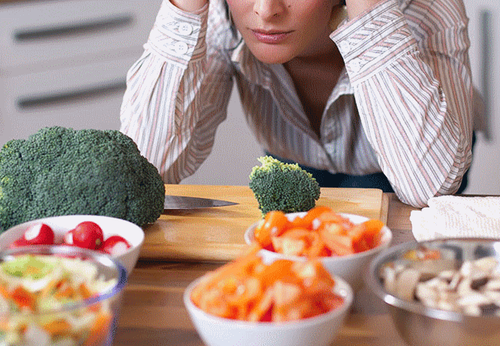
In the process of caring for cancer patients, you have a need for advice or more effective palliative treatments. You can take your child to the Oncology Department at Vinmec General Hospital for advice and examination by experts. Here, based on the diagnosis results, the doctor will have a treatment method for each specific case to bring the best effect.
Please dial HOTLINE for more information or register for an appointment HERE. Download MyVinmec app to make appointments faster and to manage your bookings easily.
Reference source: webmd.com



